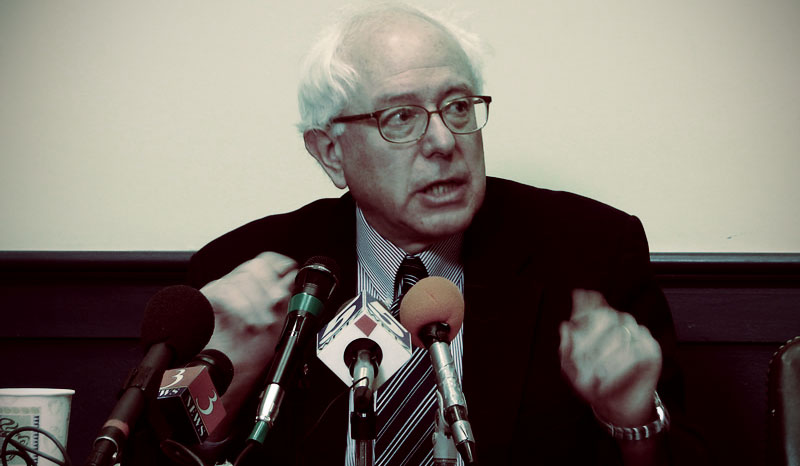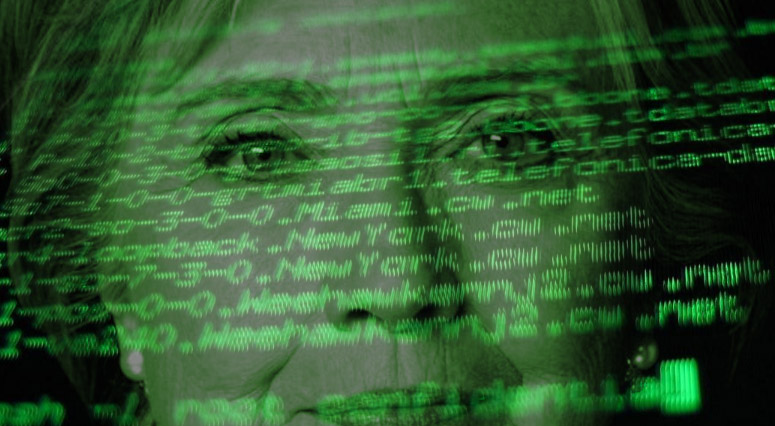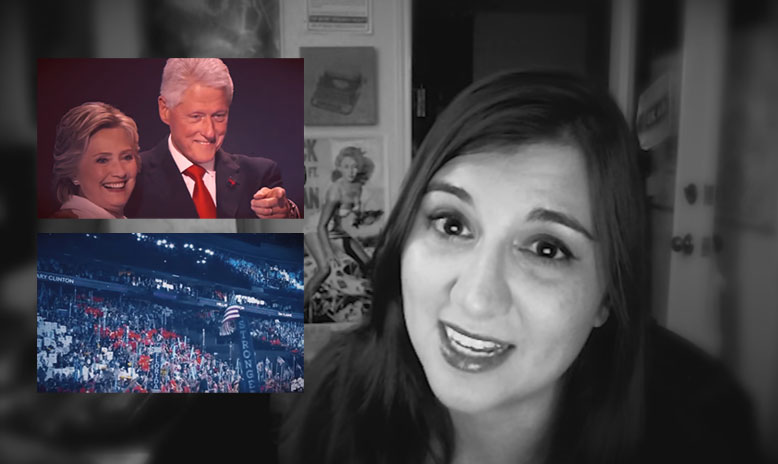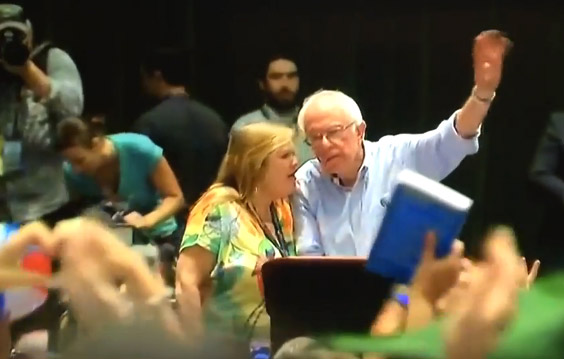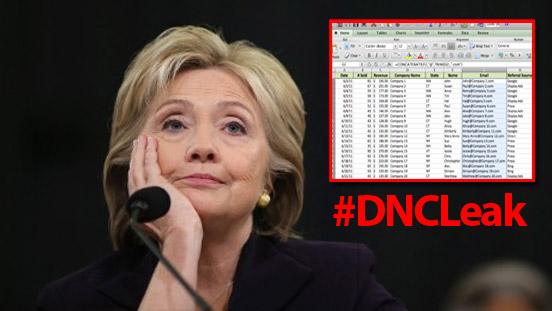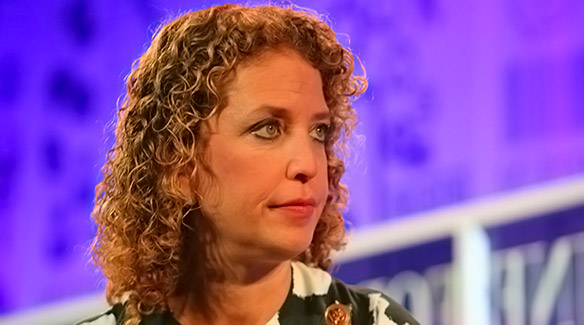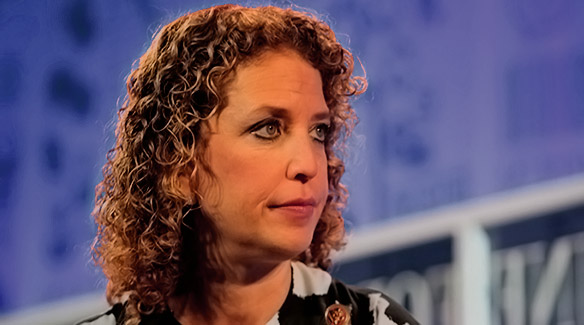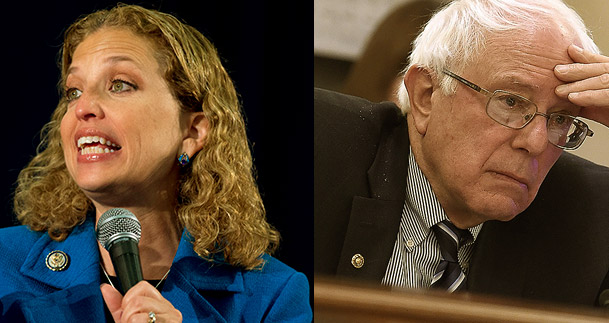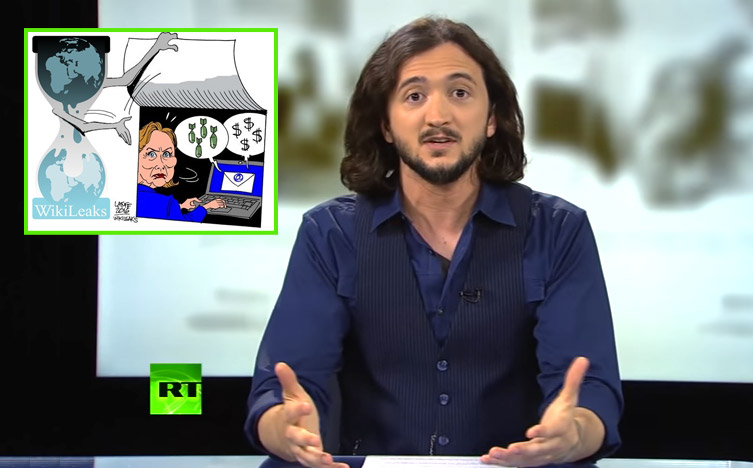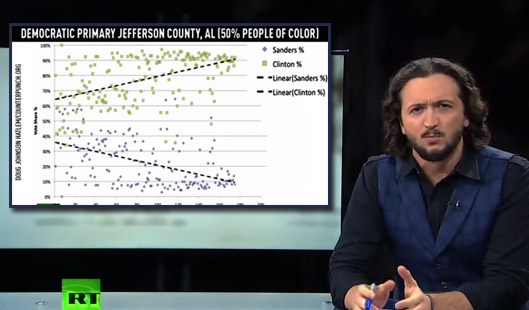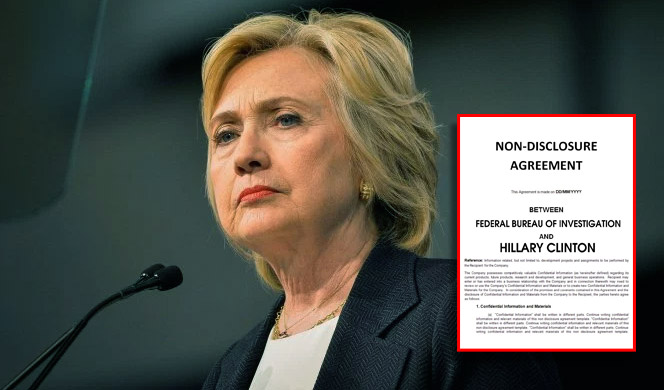FBI sources confirm with the press that they were ordered to signed an NDA in order to interview Hillary Clinton as part of their email investigation
In what the NYPost calls an “unusual move”, the FBI agents involved in investigating Hillary Clinton’s email server were ordered to signed what is called a “Case Briefing Acknowledgment” form which acted as a separate non-disclosure agreement on top of the usual NDA agents must sign before obtaining security clearance for a case.
The Post says their sources from the FBI are very disappointed with director James Comey’s recommendation that Hillary Clinton not be prosecuted for negligence:
Sources said they had never heard of the “Case Briefing Acknowledgment” form being used before, although all agents must initially sign nondisclosure agreements to obtain security clearance.
“This is very, very unusual. I’ve never signed one, never circulated one to others,” said one retired FBI chief.
An FBI agent currently on the job admitted, “I have never heard of such a form. Sounds strange.”
Meanwhile, FBI agents expressed their “disappointment” over FBI Director James Comey’s decision not to recommend charges against Clinton, sources close to the matter told The Post.
“FBI agents believe there was an inside deal put in place after the Loretta Lynch/Bill Clinton tarmac meeting,” said one source.
Another source from the Justice Department was “furious” with Comey, saying he’s “managed to piss off right and left.”
The document was first picked up by the press when it was referred to by Senate Judiciary Committee Chairman Charles Grassley, R-Iowa, on his government website in an open letter to FBI director James Comey regarding the NDA as violating whistleblower protections. Stephen D. Kelly, senior deputy to Director Comey, wrote a letter back to Grassley which Fox News reported on after obtaining. The Whistleblower Protections Act, which Grassley authored, requires a whistleblower exemption clause in nondisclosure agreements given to employees working on the case and was not included in the Case Briefing Acknowledgment form until after the investigation was officially concluded by the FBI.
An excerpt from Grassley’s letter shows a clear concern for how the FBI has handled the case, listing 17 matters which he feels have not been resolved regarding the case:
1. When will you reply to my letter asking about the apparent conflicts in this case? Since I sent my letter, Former President Clinton had a private meeting with Attorney General Lynch and the New York Times reported that Former Secretary Clinton was considering retaining her as Attorney General if she is elected President. In light of the other apparent conflicts outlined in my letter and this new information, do you believe there is no appearance of a conflict warranting the appointment of a special counsel, and if not, why not?
2. How many emails contained classification markings, what were those markings, and why is that not considered evidence of intentional mishandling of classified information? Did the FBI investigation determine how each of those documents marked as classified was transferred from classified systems onto an unclassified system and then emailed?
3. Publicly-released email indicates Secretary Clinton instructed a subordinate to “remove headers” from a classified document and “send nonsecure.” The document was a set of talking points related to a principals meeting of the National Security Council. Please explain how that is not evidence of intent to mishandle classified information. Was Secretary Clinton asked about that email in her interview with the FBI? Was her subordinate asked about it? What were their responses?
4. Given your statement that Secretary Clinton and her aides were “extremely careless” in handling classified information, why do you believe it would be unreasonable for any prosecutor to bring a charge based on “grossly negligent” handling of classified information? Is there a distinction between those two standards? Or do you believe that there should be an Executive Branch policy of refusing to prosecute anyone for gross negligence without evidence of intentional conduct, even though the statute does not require it? If so, would you recommend repealing the statute criminalizing gross negligence? If not, why not?
5. As part of the investigation, did the FBI review the classified cybersecurity briefing Diplomatic Security arranged for Secretary Clinton and her staff in 2011, the Boswell Memorandum regarding cybersecurity threats relating to the use of Blackberries, and the other relevant security warnings given to Secretary Clinton and her staff on these issues? If not, why not? Did you evaluate whether such repeated warnings to Secretary Clinton about specific cyber threats and the use of non-government email, along with her subsequent and continuing refusal to comply with those multiple warnings and instructions, constituted gross negligence? If not, why not?
6. Were any of Secretary Clinton’s non-government servers, or their backups, located outside of the United States? Did the FBI recover all of the servers involved?
7. In your statement you said: “To be clear, this is not to suggest that in similar circumstances, a person who engaged in this activity would face no consequences. To the contrary, those individuals are often subject to security or administrative sanctions. But that is not what we are deciding now.” Has the FBI recommended that Secretary Clinton or any of her senior aides have their security clearances suspended or revoked as a result of its findings? If not, why not?
8. One of the people who ran Secretary Clinton’s private server, Bryan Pagliano, invoked the Fifth Amendment when called to testify before the Benghazi Committee, when approached by my Committee, and in related Freedom of Information Act litigation. He reportedly received a limited immunity agreement from the Department of Justice. Did any other people the FBI contacted as part of the investigation invoke the Fifth Amendment? Did Secretary Clinton invoke the Fifth Amendment when interviewed by the FBI?
9. The head of SES/IRM during Secretary Clinton’s tenure, John Bentel, testified under oath to the Benghazi Committee that he only learned of Secretary Clinton non-government email and server when the story broke in the press in 2015. He made the same assertion to my Committee through his lawyer. Yet, as part of the State OIG’s investigation, two of his subordinates independently told State OIG that they had raised concerns to Mr. Bentel in 2010 about Secretary Clinton’s non-government email and server not complying with federal records requirements, that he falsely told them the State Department’s legal team had approved her email system, and then told them “not to discuss the matter any further” and “never to speak of the Secretary’s personal email system again.” Did the FBI interview Mr. Bentel as part of the investigation? If not, why not? Did Mr. Bentel repeat his claim that he only learned of the non-government email and server from the media in 2015? Did the FBI attempt to resolve the conflict between Mr. Bentel’s claims and the claims of his two subordinates? If not, why not?
10. Did the FBI or Department of Justice raise any concerns about several of Secretary Clinton’s associates using the same attorneys to represent them in the investigation? Did the FBI determine whether Secretary Clinton paid for the attorneys for her associates, especially Mr. Pagliano and Mr. Bentel, and whether such third-party fee arrangements raised conflicts of interest given that those associates were being asked questions whose answers could incriminate Secretary Clinton? In the FBI’s view, would a third-party fee arrangement in which Secretary Clinton paid for Mr. Pagliano’s attorney constitute a conflict of interest when he was given immunity to speak about his involvement in her server? If not, why not?
11. According to press reports, the Department of Justice made an agreement with Cheryl Mills that certain topics would be off-limits during her interview with the FBI, including questions about her role in sorting and deleting Secretary Clinton’s email. This was purportedly because Ms. Mills claimed to be acting as Secretary Clinton’s private attorney in doing so, and thus sought to shield those actions behind attorney-client privilege. Did the FBI and/or Department of Justice make any agreements, formally or informally, with Secretary Clinton, her associates, or their attorneys, to preclude the FBI or Department of Justice from certain areas of inquiry? If so, please describe these arrangements and provide copies of all relevant records of them.
12. Did Secretary Clinton invoke attorney-client privilege, or any other privilege, to refuse to answer any questions posed by the FBI or the Department of Justice during her interview?
13. Rule 1.11 of the ABA Model Rules of Professional Conduct, which covers “Special Conflicts of Interest for Former and Current Government Officers and Employees,” specifically states that “a lawyer who has formerly served as a public officer or employee of the government . . . shall not otherwise represent a client in connection with a matter in which the lawyer participated personally and substantially as a public officer or employee, unless the appropriate government agency gives its informed consent, confirmed in writing, to the representation.” While working for Secretary Clinton at the State Department, Ms. Mills was personally and substantially involved in Secretary Clinton’s use of a personal email and server for official business. Under the rule, it appears that she should have been precluded from serving as Secretary Clinton’s private attorney in the same matter after leaving the State Department. Did the FBI determine whether the State Department had given written consent for Ms. Mills’ private representation of Secretary Clinton in this matter? Did the FBI otherwise raise concerns about the conflicts the representation posed?
14. When did the FBI first contact Secretary Clinton as part of the investigation? When did it request an interview? When was the date of the interview determined?
15. Did the FBI investigate Secretary Clinton’s and her associatess possible violations of laws concerning the treatment of federal records, such as 18 U.S.C. § 2071, which prohibits concealing or destroying such federal records? Did the FBI investigate whether any of the thousands of federal records Secretary Clinton and her attorneys deleted were responsive to Congressional inquiries or agency inquiries, such as ones from the State Department OIG, which would have violated 18 U.S.C. §§ 1505 and 1519, respectively? Did the FBI evaluate the numerous emails released suggesting that Secretary Clinton and her associates may have attempted to evade the Freedom of Information Act?
16. Did the FBI investigate, or is the FBI currently investigating, allegations of public corruption relating to the Clinton Foundation and former President Clinton’s speaking fees from foreign governments? If not, why not?
17. Under the law, it is a “well-settled principle that false exculpatory statements are evidence – often strong evidence – of guilt.” See, e.g., Al-Adahi v. Obama, 613 F.3d 1102, 1107 (D.C. Cir. 2010); United States v. Penn, 974 F.2d 1026, 1029 (8th Cir. 1992); United States v. Meyer, 733 F.2d 362, 363 (5th Cir. 1984). As your statement and the State OIG report both demonstrated, Secretary Clinton and her representatives made numerous exculpatory statements later shown to be false: that she never sent or received any classified information; that she never sent or received any information that was classified at the time; that she never sent or received any information marked as classified; that she established the server setup in order to only have to use one device; that the State Department approved her server arrangement; that her attorneys reviewed each of her emails in sorting them for deletion or production; that she turned over all her federal records; that she would cooperate with any inquiries into the issue; that she would encourage her associates to cooperate as well. Did the FBI weigh the probative value of this cavalcade of false statements in determining her guilt and intent, as it should have under the law?
As of July 20th, 2016, Attorney General Loretta Lynch has kept her word of not prosecuting Clinton at the advice of Director Comey, despite the controversy surrounding her decision after a brief lunch meeting with former president Bill Clinton which critics claimed was a conflict of interest and influenced Lynch’s decision, to which she denied.

